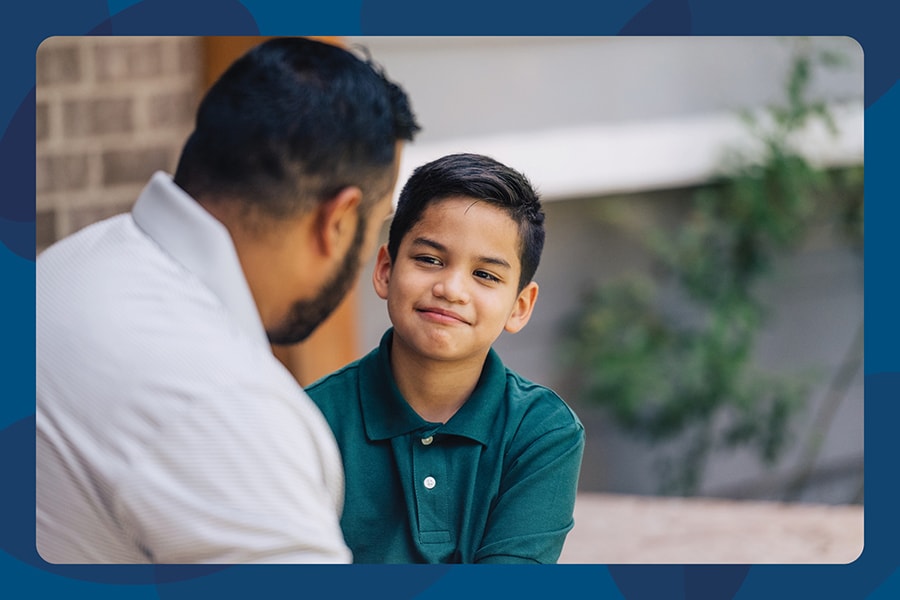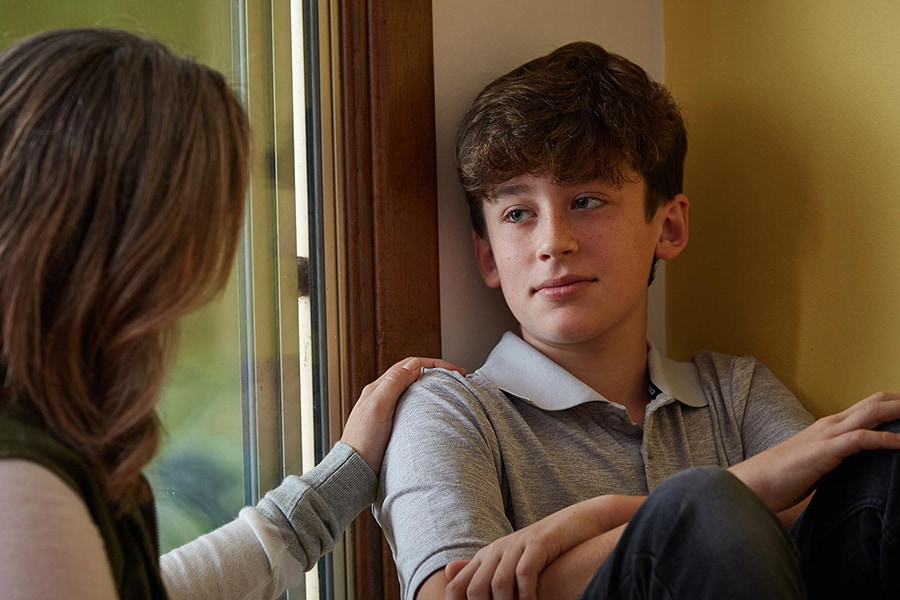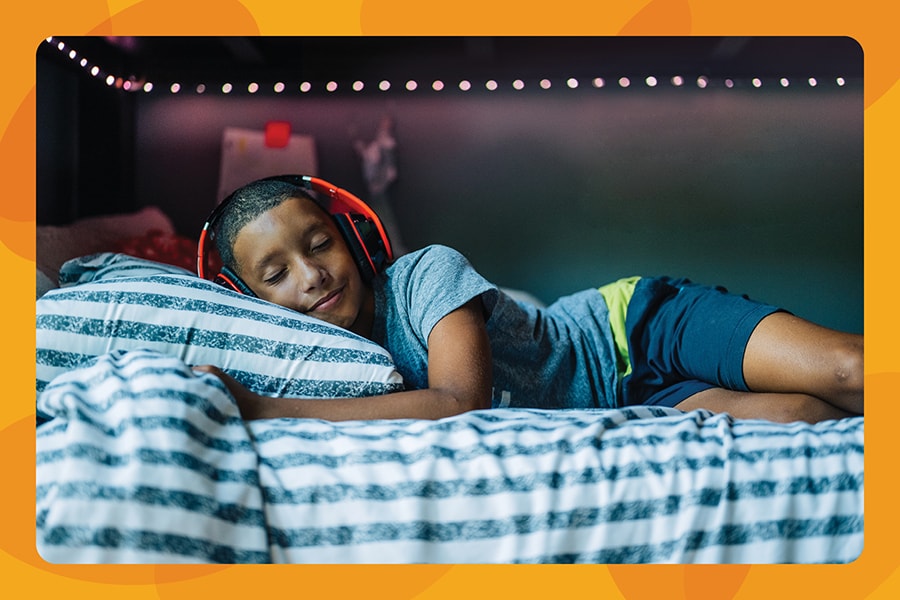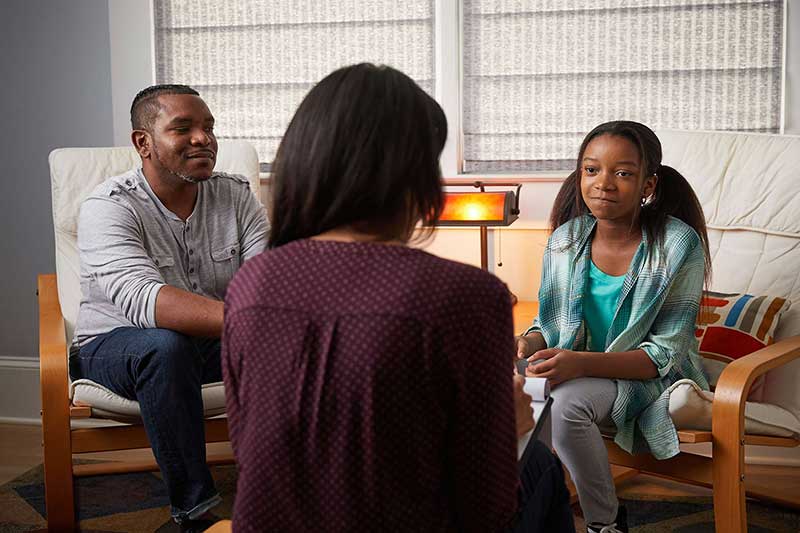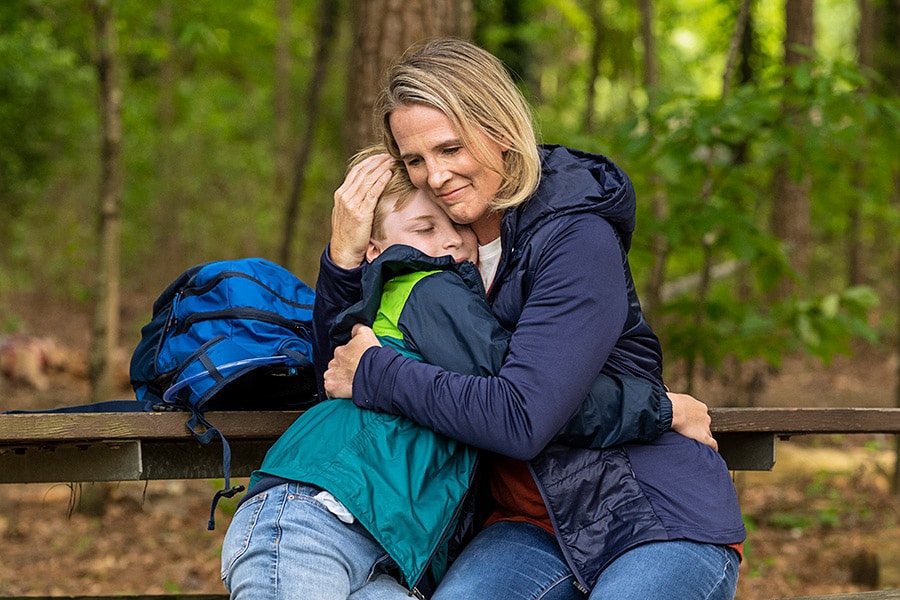Preventing People-Pleasing Behavior in Kids

On the surface, people pleasing and kindness seem similar, but they’re actually really different behaviors. When we engage in people pleasing, we prioritize others so much that we’re no longer kind to ourselves. We put everyone else’s needs above our own, even if that means hurting our own health and well-being.
It’s easy to fall into these tendencies starting at a young age, so it’s important to recognize the signs of people pleasing and understand how our own behavior and words can affect kids’ development. Read on to learn how we can prevent kids from developing people-pleasing behavior, and how we can support kids and teens who are already struggling with people pleasing.
In this article:
What is people pleasing and why do we do it?
People pleasing is putting someone else’s needs above your own, often out of fear and in an attempt to feel safe, accepted or loved. Even if it’s harming them, those who people please do so because they’re afraid of what’ll happen if they don’t (e.g., rejection, abandonment).
Those who struggle with people-pleasing behavior typically had early experiences that taught them that their needs or feelings were too much, and they learned to make themselves “small” and easy to love. They may have even learned that they needed to be compliant to stay safe. As a result, they dismiss their feelings and needs to avoid danger (real or perceived) and stay connected to others.
What does people pleasing look like?
People pleasing is usually a consistent pattern of behavior over an extended period of time. It can look different for everyone, but here are some common signs:
- Finding it difficult to say no, even when if it’s inconvenient, uncomfortable or harmful.
- Ignoring personal needs to focus on others.
- Not being able to identify personal wants or needs, even when asked.
- Avoiding conflict or apologizing unnecessarily to keep the peace.
- Being quick to agree, even if they have different ideas or opinions.
- Deferring to others rather than speaking up.
- Overcommitting and taking on too many things to satisfy others, leading to stress and burnout.
- Constantly seeking approval and validation to know they’re OK and not being rejected.
- Feeling guilty and that they’re disappointing others if they attempt to prioritize themselves.
- Finding it difficult or impossible to set and/or maintain clear boundaries.
Is being a people pleaser bad?
People pleasing may lead to positive outcomes in the short-term, like appearing loyal or dependable, or avoiding uncomfortable situations. But it can lead to many negative long-term effects in kids (and grown-ups, too). These may include:
- Self-abandonment, loss of identity and depression. When we dismiss our own feelings and needs, we may feel inauthentic and disconnected from who we really are, which can lead to depression.
- Built-up anger, frustration and resentment. Ignoring our needs and desires while doing things we don’t actually want to do can lead to bottled-up emotions.
- Anxiety and guilt. Frequent concern about meeting others’ expectations can cause anxiety. We may also experience guilt when we’re unable to meet someone’s needs or try to prioritize our own.
- Overwhelm, fatigue and burnout. Constantly trying to please others can be exhausting. We may take on new responsibilities, accommodate other schedules and agree to things we don’t have time for because we’re afraid of what will happen if we say no.
- Unhealthy relationships. People pleasing causes unhealthy dynamics in relationships because we’re not being genuine and honest. When something isn’t working, we may try to change ourselves to be easier or less needy, rather than trying to change the dynamics or asking something of the other person. On the outside, we might seem happy and easygoing, but if inside we’re feeling hurt or resentful, it can lead to tension and unresolved issues.
- Poor sleep and other physical health concerns. Overthinking how to please others can lead to restless nights and poor sleep. Suppressing feelings for an extended period may also lead to chronic tension, pain or illness.
How can I prevent my child from developing people-pleasing behavior?
Nobody is born a people pleaser—it’s a learned behavior. So that means people pleasing can be prevented. Here are some ways we can help kids from developing people-pleasing behavior:
- Provide unconditional love. If kids think love is dependent on their actions, they’ll constantly try to please others to gain approval. We need to make it clear that we love them regardless of what they do, and we must be clear that they aren’t responsible for our feelings. Avoid saying things like, “You make me happy when you …”
- Teach them to identify and express their feelings and needs. Be clear that you want to hear their opinions and needs, and that their voice matters. Regularly ask what they think and feel. This teaches them to look within themselves, rather than looking to others for answers and validation. Instead of giving them constant praise, which only encourages more external validation, ask how they feel when they accomplish something.
- Validate their feelings by letting them know that what they feel is real and makes sense. Instead of dismissing or minimizing their feelings by telling them not to feel a certain way, let them know it’s OK and normal to feel whatever they feel.
- Model and practice assertiveness. Teach kids that it’s not only OK to set boundaries, but that it’s an essential part of building healthy relationships. Help them practice saying no respectfully but firmly and help them understand that they don’t need to justify or explain a “no.” Remember, kids learn by watching us, so we need to model setting healthy boundaries and speaking up for ourselves, too.
- Encourage individuality and authenticity over agreement and compliance. Encourage kids to think independently and speak up, rather than going along with what everyone else wants. Let them know it’s OK to have different beliefs and that their value doesn’t depend on being the same as others.
- Normalize disagreement. Teach kids that it’s normal and OK to disagree with others. Be clear that respectful disagreement is part of healthy relationships and not something that should be feared or avoided.
How to stop people-pleasing behavior
If you notice that your child is already exhibiting people-pleasing behavior, there are things you can do to help:
- Teach the difference between kindness and people pleasing by helping kids notice the motivation behind their behavior. They may ask themselves, “Am I doing this because I want to, or because I’m seeking approval or avoiding conflict?” Or, “If I do this, am I ignoring my own needs and dismissing my feelings?” If they’re doing something because they’re worried they’ll be rejected if they don’t, they’re likely people pleasing.
- Build self-awareness. Encourage kids to regularly ask themselves, “Do my inside feelings match my outside actions?”
- Encourage kids to pause and ask themselves if they’ve done something wrong before apologizing. If not, instead of saying, “I’m sorry,” suggest that they say, “Thank you.” For example, instead of apologizing for talking too much, they could say, “Thank you for being patient and listening to me.”
- Help them practice self-compassion and reframe unhelpful or inaccurate thoughts or beliefs. For example, instead of thinking, “I have to be easy and agree with others to be liked,” suggest that they try thinking, “My opinions and feelings matter. People who care about me want to hear what I have to say.”
- Be a positive role model. Model speaking up, sharing your feelings and needs, and setting healthy boundaries. This can be uncomfortable, but it’s essential to show kids that it’s important to tolerate the short-term discomfort of disappointing others instead of taking on the long-term pain that comes from constantly disappointing ourselves.
Getting professional help for people pleasing
People pleasing can be confusing and tricky to navigate. If you’re concerned about your child’s well-being, or unsure of how best to support them, reach out to a licensed mental health professional. Therapy can be a great opportunity to better understand why we’re engaging in people-pleasing behavior and develop healthier behavior.
Call or text 988 if you or a loved one are experiencing thoughts of suicide, self-harm or any mental health crisis. You can also chat or text for support by downloading the MyGCAL app in the App Store. Take any thoughts of suicide seriously.
